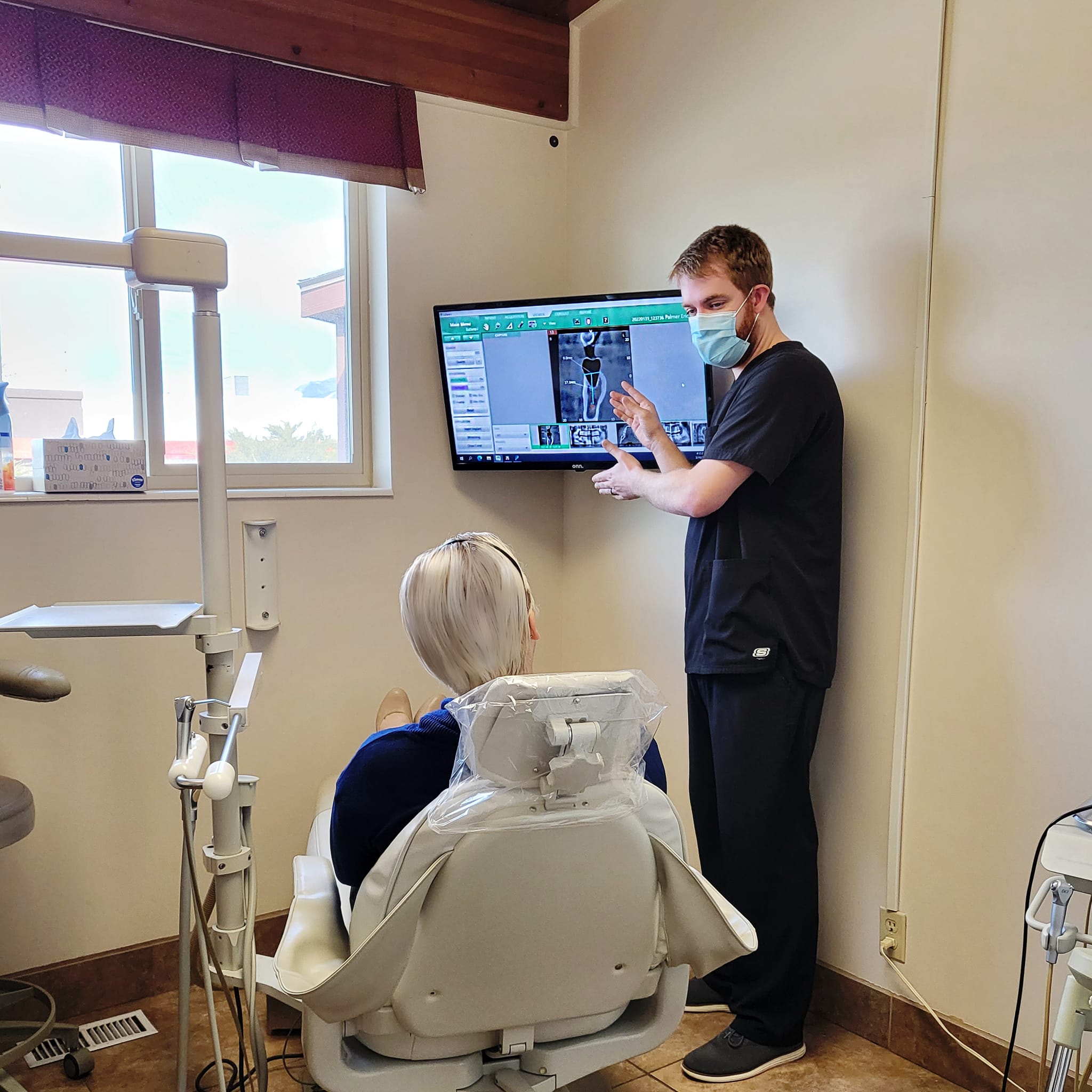Getting kids to care about brushing their teeth isn’t always easy—but what if it could be fun? Pediatric dentists are turning to play therapy to make oral health something kids actually enjoy learning about. Through games, storytelling, and hands-on activities, kids explore how to take care of their teeth in a way that feels like play, not a chore.
From puppets demonstrating proper brushing techniques to interactive models that teach flossing, these creative approaches build confidence and positive habits that stick. The result? Healthier smiles and happier kids who look forward to their dental visits. Let’s explore how play therapy is transforming the way we teach kids about oral care!
How can play therapy help children learn proper oral hygiene?
Play therapy can be a powerful tool in helping children learn proper oral hygiene by turning the learning process into a fun, interactive experience. Here’s how play therapy can support children in adopting good oral health habits:
Reducing Fear and Anxiety: Pediatric dentists can help children feel more relaxed and less intimidated by dental visits by using toys, games, and role-playing. This reduces anxiety and helps them approach oral hygiene with a positive mindset.
- Interactive Learning: Play therapy allows children to learn about oral hygiene actively. For example, role-playing as a dentist or patient helps kids understand dental procedures and the importance of brushing and flossing in a comfortable, relatable way.
- Using Games and Rewards: Children are often motivated by games, so pediatric dentists use reward-based activities to encourage proper oral care. For instance, using a brushing chart or providing small rewards for consistently brushing and flossing can reinforce good habits.
- Modeling Healthy Behavior: Through play, children can observe dental professionals or characters demonstrating healthy oral habits, which helps them understand the importance of brushing, flossing, and visiting the dentist regularly.
- Encouraging Routine: By making oral hygiene fun through play, kids are more likely to develop a routine and see dental care as an enjoyable, normal part of their day.
Play therapy helps children understand the importance of oral hygiene in a non-threatening way while fostering good habits that will last a lifetime.
What types of activities do pediatric dentists use in play therapy sessions?
Pediatric dentists use a variety of activities in play therapy sessions to make learning about oral hygiene enjoyable and less intimidating for children. These activities are designed to engage kids and help them understand dental procedures while fostering positive associations with dental care. Here are some common activities used:
- Role-Playing: Children often pretend to be dentists or patients in pretend play. This allows them to familiarize themselves with dental tools, procedures, and the dental environment. Role-playing helps reduce fear and makes the experience more relatable and fun.
- Brushing Demonstrations with Toys: Pediatric dentists may use toys like model teeth or stuffed animals to demonstrate proper brushing and flossing techniques. Kids can practice brushing on the toys, reinforcing the importance of thoroughly cleaning teeth.
- Storytelling: Using stories or books featuring characters who go to the dentist or practice good oral hygiene can make learning more engaging. These stories help children understand the importance of dental care through relatable and entertaining narratives.
- Games and Rewards: Dentists often incorporate games that involve oral hygiene, such as brushing races or puzzles. Reward systems, like stickers or small prizes, motivate children and make the experience more enjoyable.
- Visual Aids: Pediatric dentists may use colorful charts, videos, or animated characters demonstrating proper brushing techniques, helping kids visualize the steps in caring for their teeth.
These playful activities help children learn essential oral care habits and make their dental visits a positive, enjoyable experience.
Why is play therapy effective for teaching kids about dental health?
Play therapy is highly effective for teaching kids about dental health because it transforms learning into an engaging, non-threatening experience. Here’s why it works so well:
- Reduces Anxiety and Fear: Many children fear the dentist due to unfamiliar sights, sounds, and procedures. Play therapy helps alleviate these fears by creating a comfortable and familiar environment, making dental visits less intimidating, and encouraging positive associations with oral care.
- Enhances Understanding: Through role-playing and interactive games, children can experience dental procedures in a fun and understandable way. This hands-on approach helps kids grasp dental concepts, such as brushing, flossing, and regular check-ups, in a concrete manner they can relate to.
- Encourages Active Participation: Play therapy allows children to engage in learning rather than passively receiving instructions actively. By practicing brushing on toys or acting out dental visits, children feel empowered to take control of their oral health.
- Promotes Long-Term Habits: Children learning about dental health through enjoyable activities are more likely to adopt healthy habits. Play therapy creates a sense of fun around oral hygiene, encouraging kids to continue these habits at home.
- Builds Trust: Play therapy fosters a sense of trust between the child and the dentist. Children feel more comfortable and confident when engaging with dental care in a playful, supportive setting.
Play therapy helps children learn about dental health in a relaxed, enjoyable way, making it a powerful tool for fostering lifelong oral hygiene habits.
How do pediatric dentists tailor play therapy to different age groups?
Pediatric dentists tailor play therapy to different age groups by adjusting the activities’ complexity, style, and approach to suit each child’s developmental stage. Here’s how they customize play therapy:
- Infants and Toddlers (0-3 years): Pediatric dentists focus on building trust and familiarity with the dental environment for very young children. Activities often include soft, sensory play with toys that mimic dental tools, helping the child get comfortable with the sounds and sights of a dental visit. Simple, soothing interaction helps reduce fear and create a positive association with oral care.
- Preschoolers (3-5 years): Children are more verbal and curious at this age. Dentists use role-playing and storytelling to teach basic dental concepts. For example, children might “brush” a stuffed animal’s teeth to learn proper techniques. Interactive games and songs about brushing or visiting the dentist make learning enjoyable and engaging.
- School-Aged Children (6-12 years): Pediatric dentists introduce more detailed lessons about oral hygiene and preventive care, often using visual aids, animated videos, or digital games. They may also begin to discuss more complex topics, such as plaque and cavities, using games or rewards to encourage healthy habits.
- Teens (13+ years): Pediatric dentists emphasize personal responsibility for oral health for teenagers. They engage in open discussions about the importance of proper dental care, including the impact of diet, smoking, and braces. Teen-focused activities may include interactive digital apps or educational videos about long-term dental health.
By tailoring play therapy to each age group’s needs and understanding, pediatric dentists ensure that children of all ages learn important oral hygiene habits appropriately and engagingly.
Discover How Play Therapy Helps Kids Learn Oral Health!
At Gentle Touch Family Dentistry, we use play therapy to make learning about oral health fun and engaging for children. Through interactive activities like role-playing, storytelling, and games, we help kids understand the importance of brushing, flossing, and regular dental visits in a stress-free environment. Our goal is to reduce anxiety while teaching children essential dental habits that will last a lifetime.
By making dental care enjoyable, we ensure that kids develop positive associations with oral health, making it easier for them to adopt healthy habits. Contact Gentle Touch Family Dentistry today to learn more!



